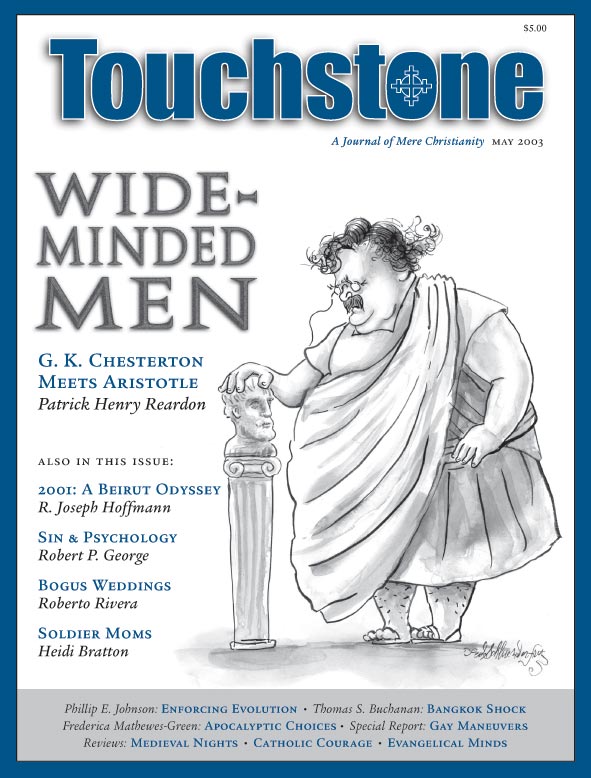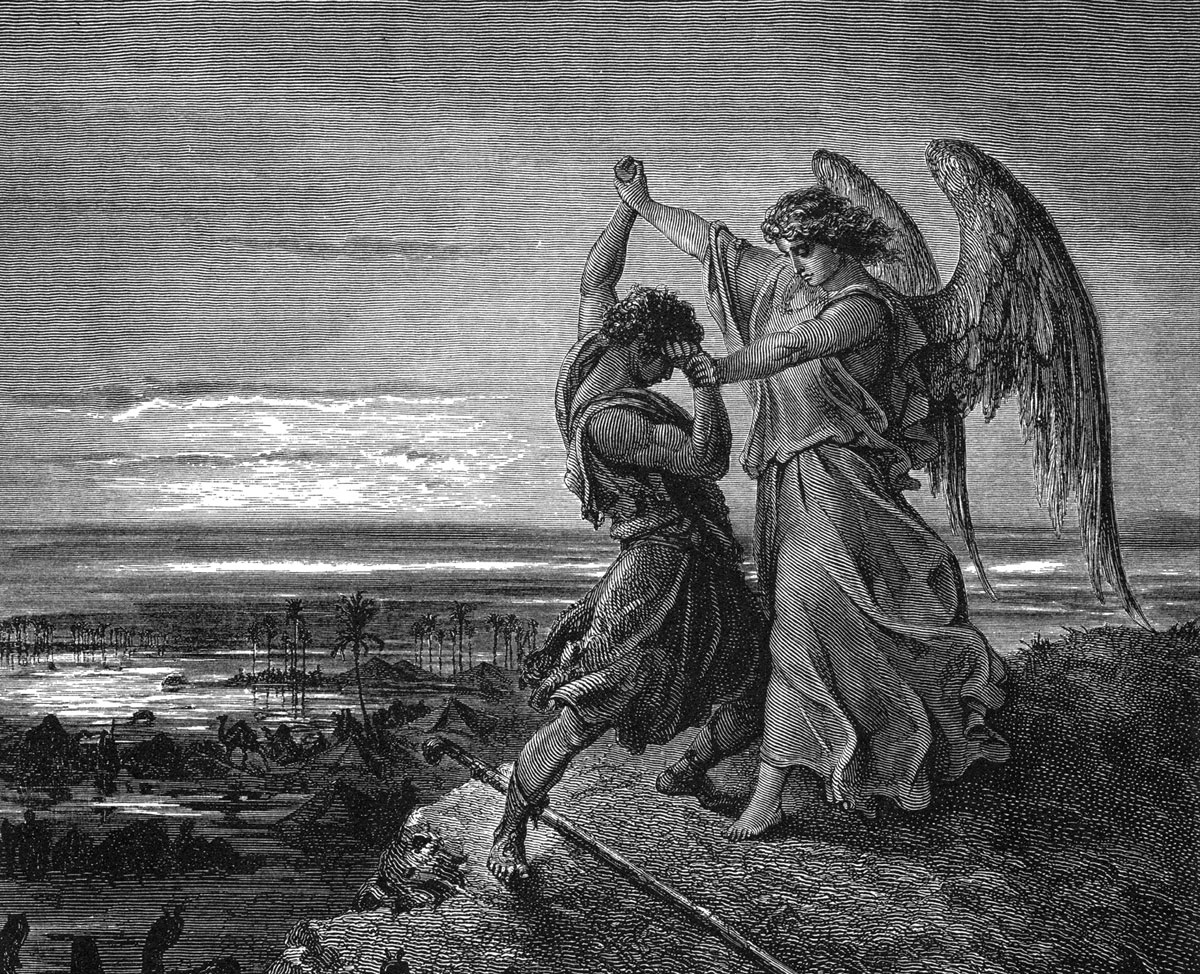A Fundamental Clash
Imagine a stage or cinema extravaganza, a production costing millions, requiring the genius of a few and the practiced skill of hundreds. Imagine its whirling, pulsing, magical music and acting bringing a story about sadness and rejection to a great, happy end, where its principal characters discover the Secret of Life: “You only go around once, so you gotta get what you can out of it.” (Exit at finale ultimo stage left with chorus line and two-bit philosopher.)
In our home there is an adjective for this: Newyorky. When one comes home from the play or film or musical with that pronouncement, nothing more need be said. The judgment is that it was another piece of clever, expensive vapidity from that bottomless well of shallowness, the noisy, airless playground of lapsed Puritan and secular Jew, New York City—a place of rigid morality turned from God to the even more rigid, moralistic, and supremely judgmental religion of hedonism. It was another spectacle of the faith practiced by those who get nervous when they venture out to places where they are likely to meet people who believe in God—the real terror, perhaps, of the savage lands west of the Hudson and east of Hollywood. (We know there are New Yorkers to whom this does not apply, but their cultures are rarely marked for export.)
Belief in God—belief, in fact, in any commanding ultimacy beyond the reach of materialist philosophy and impulse, beyond what may be practiced as a private hobby for those with a taste for it—is, one suspects, the real origin of the pre-emptive attitude typical of Newyorquois that every light outside The City is dim until acclaimed otherwise by local standards. To these, the person who believes in God and lives his life as though God were waiting for him at the end of it is a fundamentalist, that is, he is fundamentally irrational. In less obtrusive forms, he may serve to instruct and amuse; in the more obtrusive, he is dangerous to life and property.
To the devout of this persuasion, wherever they may live, children singing “Jesus Loves Me” in Jonesville and minions of Osama Bin Laden are in the same category, for they threaten all secularist pretensions to wisdom, and the whole cultural edifice built upon it. When the religious garner enough power to become influential, they threaten lives and properties as well, particularly lives that have become defined by properties, and beyond which their owners have trained themselves to believe is nothing—lives the secret of which is to make them as long and property-full as possible. The threat is fundamentalism, that is, sincere belief in God in any form, and to reach its root, one must not only stop the terrorists, but (although it is still impolitic to say it too bluntly in America) also stop terrorism in its basic form: the public exercise of religion, of which the attack on the towers was merely an emphatic expression.
This dynamic, we believe, must be recognized in the forces at work in the wake of the massacres of September 11, 2001. The battle between the United States and the Islamic terrorists is ambiguously but inextricably related to the hostility between what has become known as the red and blue zones on the political map, the areas dominated by secularism and those where the traditional values represented by belief in the traditional God still have at least a residual cultural dominance.
One may expect the war against terrorism to include, to the degree it becomes possible, a subthematic war against transcendence, marked by the hostile identification of religious belief, and particularly, in America, of Christianity, with the desire to affront, or at worst kill, one’s neighbor on religious grounds. (Some of the purest examples of its rhetoric may be seen in homosexualist diatribes against those who believe their sexuality sinful: Whoever opposes their homosexuality hates them and would kill them if they could.) As much political and social capital as possible will be made of this by those who find belief in God, and the moral laws and the eschatology associated with him, embarrassing, offensive, and a constant rebuke to the thin, foolish philosophy of life into which they have poured so much celebrative labor, so much light, lyric, and color, and by which spectacles of devotion they compel all who believe in God to regard them as the dangerous fundamentalists that they are.
—S. M. Hutchens, for the editors
S. M. Hutchens is a senior editor and longtime writer for Touchstone.
subscription options
Order
Print/Online Subscription

Get six issues (one year) of Touchstone PLUS full online access including pdf downloads for only $39.95. That's only $3.34 per month!
Order
Online Only
Subscription

Get a one-year full-access subscription to the Touchstone online archives for only $19.95. That's only $1.66 per month!
bulk subscriptions
Order Touchstone subscriptions in bulk and save $10 per sub! Each subscription includes 6 issues of Touchstone plus full online access to touchstonemag.com—including archives, videos, and pdf downloads of recent issues for only $29.95 each! Great for churches or study groups.
Transactions will be processed on a secure server.
more from the online archives

37.5—Sept/Oct 2024
Why Law Schools Can't Teach Law
A sidebar to How Law Lost Its Way by Adam MacLeod
calling all readers
Please Donate
"There are magazines worth reading but few worth saving . . . Touchstone is just such a magazine."
—Alice von Hildebrand
"Here we do not concede one square millimeter of territory to falsehood, folly, contemporary sentimentality, or fashion. We speak the truth, and let God be our judge. . . . Touchstone is the one committedly Christian conservative journal."
—Anthony Esolen, Touchstone senior editor









